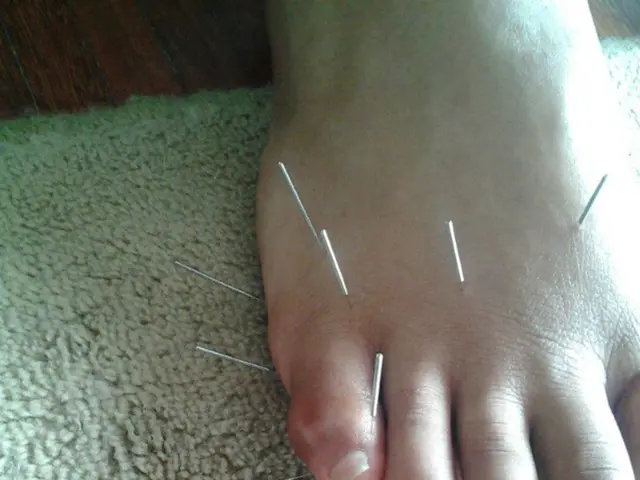Gender Inequalities Persist in Healthcare: Women Report More Negative Experiences Than Men
Medical professionals allegedly downplay concerns
Berlin - Been through the wringer with a doctor's appointment? You're definitely not alone, much to your dismay. When doctors fail to take your complaints seriously, dismiss your symptoms, or give you the wrong diagnosis, it can leave you feeling frustrated and helpless. And that can lead to you skipping your next visit to the doc.
A survey conducted by YouGov on behalf of Doctolib reveals that these unfortunate experiences in healthcare settings aren't isolated incidents - and women report them more frequently than men.
"It's All in Your Head?"
Whether it's an off-putting comment or a blundered diagnosis, 31% of women surveyed say they've faced gender-based negativity at the doctor's office. Conversely, only 10% of men reported similar experiences. Women are also more likely to have their symptoms brushed aside as psychological issues, or psychosomatic, which is not always the case. A whopping 44% of women surveyed have been told this at least once, compared to 28% of men.
Delayed Diagnosis and Treatment
When doctors attribute health problems to psychological factors, it often results in delayed diagnosis and treatment, which can be a real pain (literally!). According to the survey, 57% of women say they've had to see multiple doctors to correct this issue, compared to 45% of men.
The fear of not being taken seriously can also discourage people from seeking help in the first place. Women report this fear more often than men (39% vs. 23%).
What to Do if Your Symptoms Are Being Ignored
If you feel your symptoms are being dismissed by your doctor, "Apotheken Umschau" suggests these tactics:
- Ask for an explanation of their reasoning after a thorough examination
- Get a second opinion from another healthcare provider
- Take a friend or family member with you to the appointment to speak up if needed
The survey was conducted between May 13-15, 2025, with 1,037 participants aged 18 and above.
Additional Insights:
- When symptoms are not taken seriously due to gender bias, it can lead to misdiagnoses and delayed treatments, causing pain and suffering. Conditions such as endometriosis can take years to diagnose [1].
- Women's symptoms are often dismissed as psychosomatic, and chronic conditions like fibromyalgia and PCOS are often overlooked [1].
- Health conditions manifest differently in women compared to men, but these differences are often missed in clinical practice [2].
- Patients can take steps to advocate for themselves, such as seeking multiple opinions, staying informed, documenting their symptoms, and advocating for themselves during medical appointments [3].
- Systemic change can be encouraged by advocating for implicit bias training for healthcare professionals, promoting gender-inclusive research, and policy advocacy to address health disparities in care [3].
"What about mental health? It seems women are more likely to encounter gender-based negativity and be told their symptoms are psychosomatic, with 44% of women surveyed having been told this at least once, compared to 28% of men."
"In light of this, it's crucial to address the persistent health disparities, particularly in women's health. This includes advocating for gender-inclusive research, promoting systemic changes, and implementing implicit bias training for healthcare professionals to ensure equitable care for all."







